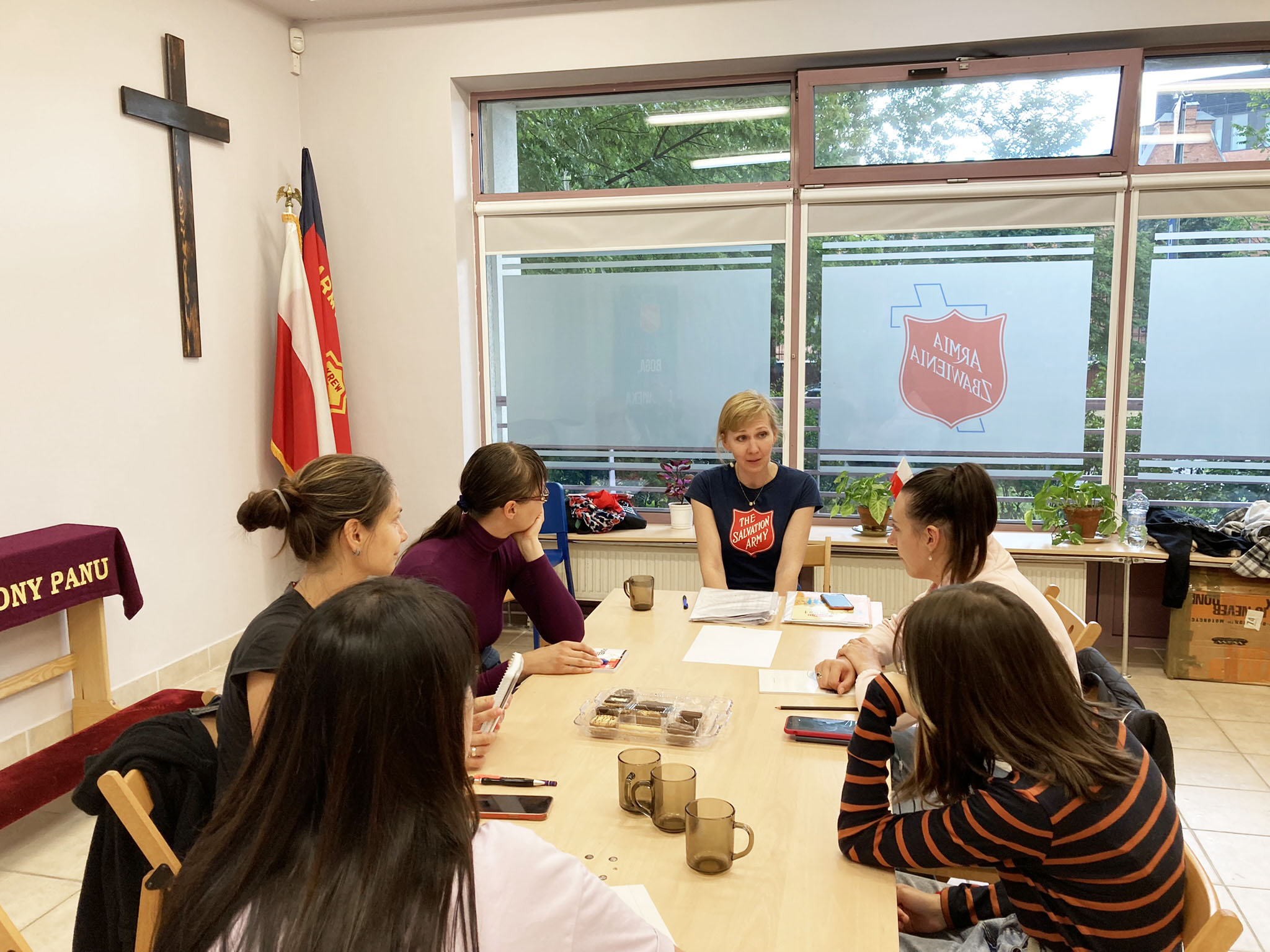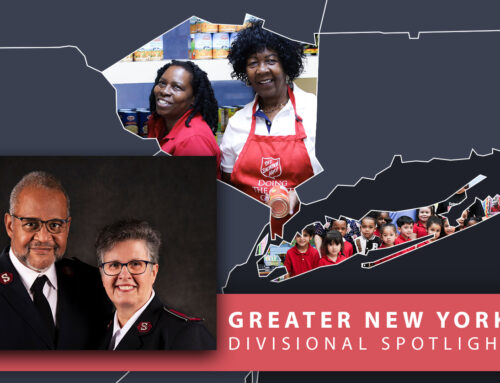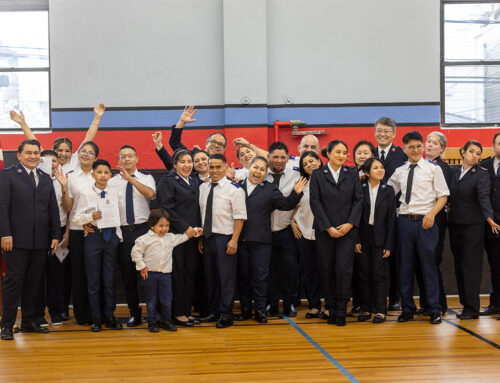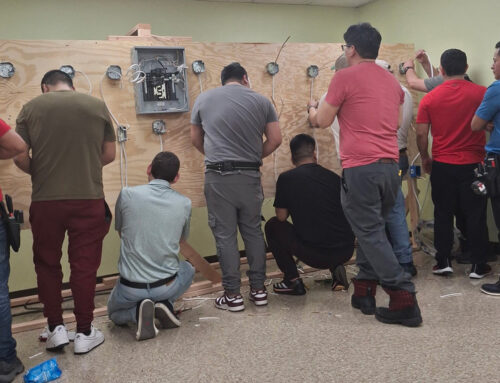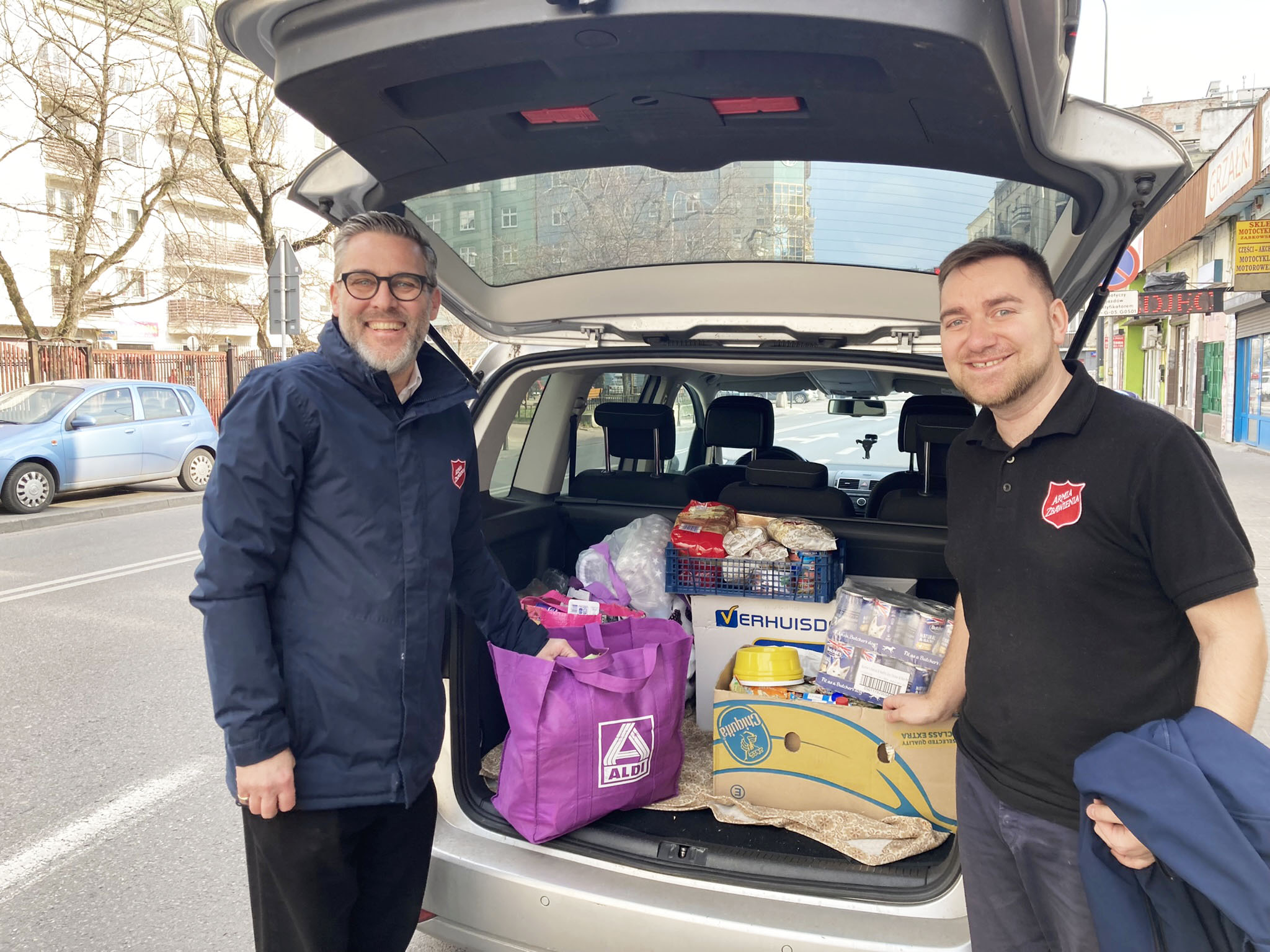
Captain Oleg in Warsaw
by Hugo Bravo
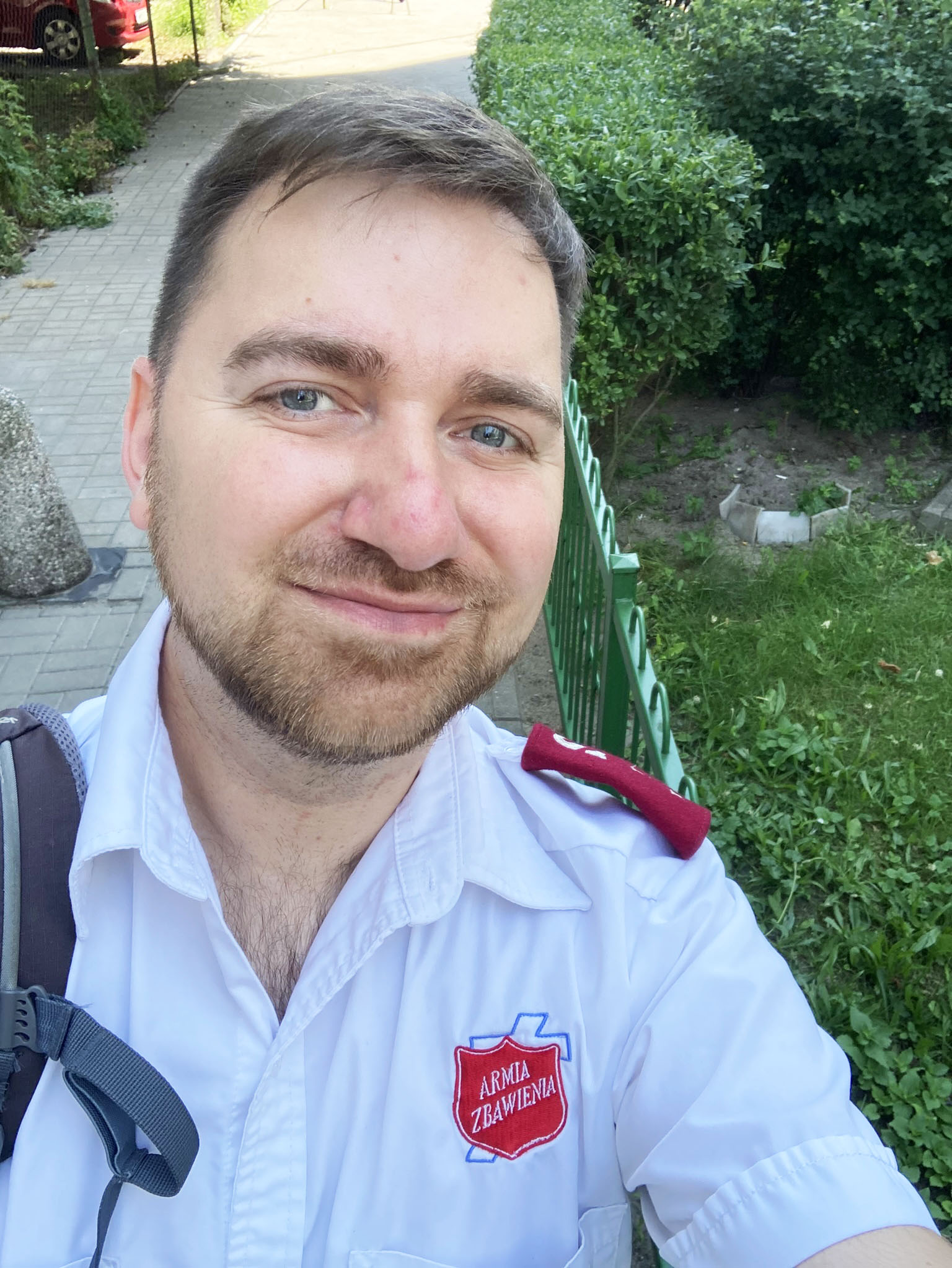 “The number of refugees coming from Ukraine to Poland is said to be in the millions,” says Captain Oleg Samoilenko, officer at The Salvation Army Warsaw Corps and a native of eastern Ukraine. “It is difficult to count, but they say about a million people are in Warsaw alone. That is a big number for such a small city. When they arrived, a lot of organizations wanted to help, of course. But as time went by, the help became less and less, even as the number of people coming continued to grow.”
“The number of refugees coming from Ukraine to Poland is said to be in the millions,” says Captain Oleg Samoilenko, officer at The Salvation Army Warsaw Corps and a native of eastern Ukraine. “It is difficult to count, but they say about a million people are in Warsaw alone. That is a big number for such a small city. When they arrived, a lot of organizations wanted to help, of course. But as time went by, the help became less and less, even as the number of people coming continued to grow.”
The Salvation Army Warsaw Corps has introduced new ways to help and welcome families from the Ukraine, such as providing gift cards for local stores in addition to donating food.
“People here have unique diets and restrictions on what they can eat, so this is easier for both us and them. At the stores, they can buy clothing, food, supplies, or anything they really need for their families,” says Captain Oleg.
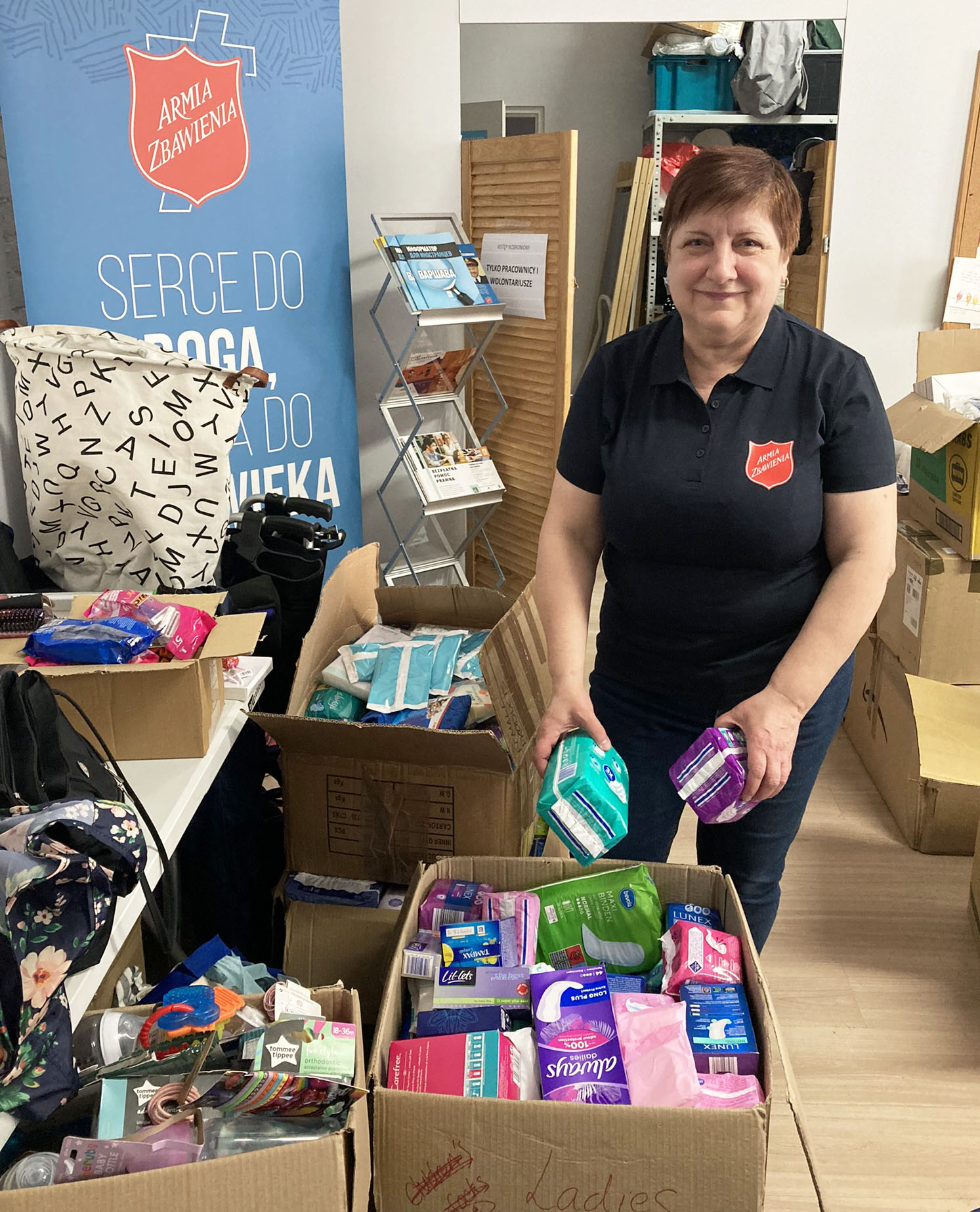
Between 700 and 800 people come to the Warsaw corps and its community center every day. Captain Oleg is assisted by his wife and his mother, who is also a refugee from Ukraine.
“Ukraine has a much bigger Salvation Army than Poland has. When I became an officer, my wife, who is Polish, and I decided that we would serve in Poland, since they needed the help more. I didn’t know that my language would become quite popular and useful,” says Captain Oleg.
Refugees from Ukraine who come to the Army feel a special kinship and connection when they see an Army officer who speaks their language. “We understand them, but at the same time we don’t know what it’s like to have your house or the school where your children go destroyed by a bomb. We show compassion, but we cannot truly understand unless we live it,” says Captain Oleg.
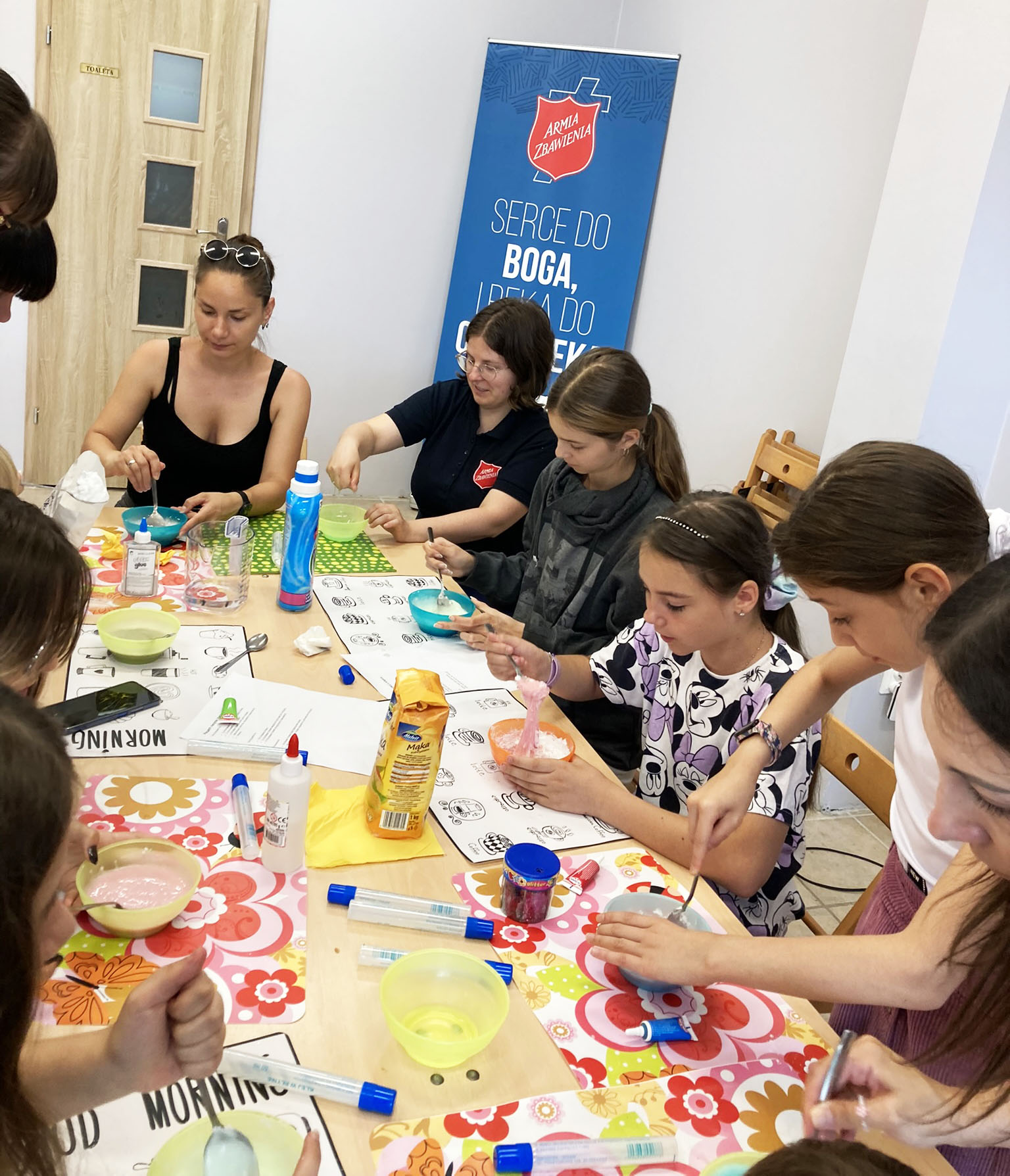
Most of the refugees who come to the corps are women and children. The programs they attend are designed to build friendships and connections with Polish families. Children are watched so that mothers can run errands or go shopping.
“The children are happy to be around other children, but they don’t quite understand what is happening when they are 10 or 11 years old. They don’t understand that their fathers are fighting in a war right now. They don’t know why they went from living in a house to living in an apartment with 19 other people,” says Captain Oleg.
Most of the families say that, although they are grateful for being taken care of in Poland, they look forward to returning to their lives in Ukraine. But some families also understand that they no longer have a home to which they can return.
“We have a mom here who came from a city in Ukraine that is now occupied by Russia. She has heard from neighbors that Russian soldiers have broken in and occupied their homes. It’s dangerous to even talk to them,” says Captain Oleg.
“That mom said to us that she has no choice now, and she is learning to speak Polish and find work here in Poland.”
